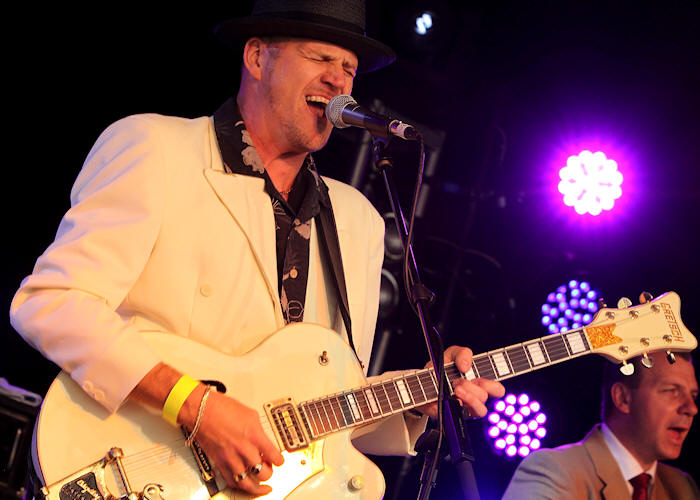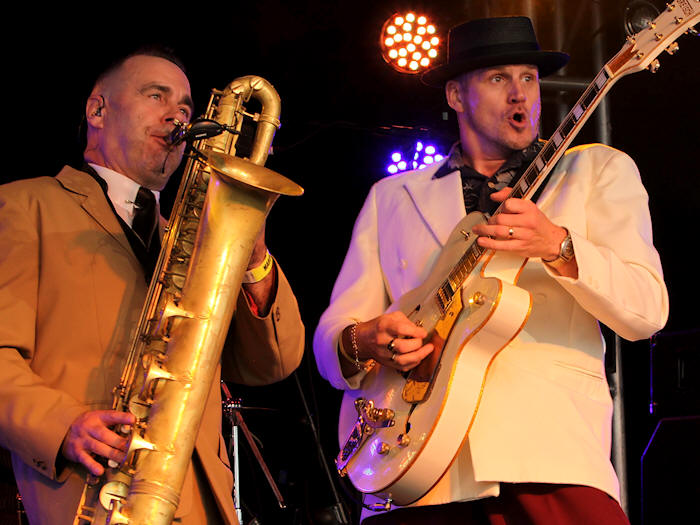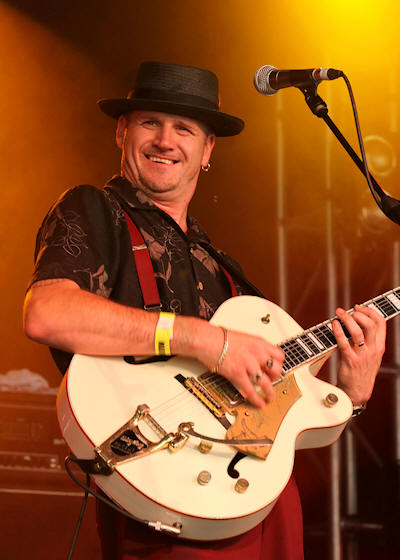
Painting © 2004 Loz
Arkle
Website
© Copyright 2000-2011 Alan White - All
Rights Reserved
Site optimised for Microsoft Internet Explorer
Early Blues Interview
|
|
"Scorching a trail
across the live music venues of the land is this sizzlin' hot 1950's R&B
combo... "The Revolutionaires
from the North East of England, with the exuberant front man Ed
Stephenson on guitar (Gretsch White Falcon) and vocals backed by sax,
bass and drums took to the stage and delivered a fine set of early
rock’n’roll, boogie and R’n’B featuring songs from the likes of Little
Richard, John Lee Hooker, Roy Brown, Louis Jordon and Stevie Ray
Vaughan. Songs included in the set were “Shake It Baby”, “Keep A
Knocking”, “Riot In Cell Block No 9” done in the John Lee Hooker style,
“The House Was Rocking”, “Down The Road Apiece” with Ed on piano, “Baby
Please Don’t Go” and “Hip Skakin’ Boogie”. The final number included the
obligatory bass and drum solo with Ed performing Chuck Berry style duck
walks. A great start to the day". The Revolutionaires
are:
_________________________________________________________________________ I caught up with Ed at the Maryport Blues Festival: Alan: What are your first musical memories growing up in the North East and did you come from a musical family? Ed: As you know, my brother Rich plays bass in the band and we run the band together, and yes, we do come from a musical family. Our father was a performer in his time. I was brought up on rhythm and blues and country and western as far back as I can remember. So we kind of got into the music very young; Little Richard, Chuck Berry, Fats Domino, Elvis, Buddy Holly and all the other rock 'n' roll greats. Country and western greats such as Hank Williams as well. What really struck a chord in us was that kind of blues sound, the black music is what I remember; putting on the Little Richard 'Greatest Hits' LP with the first track 'The Girl Can't Help It" and something happened to us inside when I heard that track, from then on I was hooked. Then basically in my early teens I started to play, and with my dad being a guitarist/singer, he set us on the right track and haven't looked back since. I've been playing full-time since I left school and it's been great so far.
Ed: For me it's the way I feel when I hear it. The beat of it, and the soul of the voices when you hear them singing. Little Richard recordings on the Specialty Label in the mid 50s were just so exciting and so full of energy, full of passion, and it really struck a chord in me, and it's been like that since. The sound of it and the energy of the music is great. Alan: Are we likely to see the Revolutionaires doing more early rootsy Rock 'n' Roll and Rhythm & Blues material in future? Ed: We are primarily influenced by the early 50s rhythm & blues stuff. We also have elements of the rock 'n' roll era in there, the likes of Chuck Berry, Little Richard, Fats Domino, and a bit of modern blues with Stevie Ray Vaughan stuff as well; you get all your influences and put them in the pot and that's what kind of comes out. Primarily we are a very energetic band, the music's fast flowing. Every now and again we put a slow blues in the set, but 99% of it is at '100 mile an hour'. That's kinda what we like to do.
Alan: Looking back on your career so far, what are your fondest memories? Ed: The highlights; well the fact that we are playing the Maryport Blues Festival on the main stage is certainly one of them. When the Revolutionaires kicked off, they were a side project of the bands I was playing with at the time. About nine years ago we kicked it off and I'd heard of Maryport Blues Festival, the Colne Blues Festival, the Rhythm Riot Festival, so from that early time of just playing in the pubs, we thought it would be nice to take it to these festivals, especially if you can get a slot of the main stage as well. To say that you can share the stage with the headline acts has been really high profile. We've also been abroad in the last few years, so we're touring Europe quite a lot doing some really great festivals, in Italy, France and Germany. Being able to travel abroad with the band experiencing different cultures and seeing how they appreciate the blues over there is a highlight.
Ed: I would love to, absolutely love to. I've been over by myself travelling from Chicago to New Orleans. I hired a car and took my guitar and did some busking in Memphis, Nashville, Jackson; loved it there and would love to take the band over. Just waiting for that contact or the agent to get us over there. That would be a dream come true to go to Memphis with the band. Alan: Are there any particular songs that you play that have special meaning to you? Ed: There is, yeah, 'Johnny B. Goode' by Chuck Berry, that struck a chord in us as a young lad. Like I said before, the first track on the Little Richard 'Greatest Hits' LP 'The Girl Can't Help It', it's just a fantastic song. It was rock 'n' roll at first, then I delved deeper to find out who influenced these guys; who influenced Chuck Berry?; who influenced Elvis? So you go further back and you find guys like Big Joe Turner, Smiley Lewis, Louis Jordan, Roy Brown, and of course Arthur Crudup and Big Mama Thornton. Even before then you've got your boogie-woogie guys in the 1930s as well, Pete Johnson, Meade Lux Lewis, Albert Ammons, we all like to pay homage to them. We do like to sound original to a certain degree but we have also taken the music on. It's now 2011, so to make it fresh we're just putting a slightly modern tilt on it, hopefully to bring a younger audience into the blues, into rock 'n' roll. Which is good, it's happening. The live music venues we play put all kinds of different music on. We turn up on stage smartly dressed and put the music across in a real energetic raw kind of way and the young students of 18 to 25 are kind of digging it. They are going out saying we've never heard this kind of music before. Go around your grandads and get his record collection out - it's really exciting music. Alan: You play guitar, keyboards and harmonica, but what is your favourite instrument? Ed: I'm a guitarist really, by trade, I've been playing piano for the past few years and enjoyed it, getting your boogie-woogie left hand going, and I play a bit of harmonica as well. So it's good to have a bit of variation for the show. On the latest CD 'Have Love Will Travel' we have a horn section and we doubled up on piano and guitar for it. It would be nice to gig with that nine piece band but very difficult to do with budgets at the moment. As a four piece we try and get as much variation in the set as we can, by swapping from piano to guitar to harmonica. It gives the band a different sound on certain songs.
Alan: Tell me about the band, when did you all get together? Ed: It originated in October 2002 when we had our first gig as The Revolutionaires. We had a different drummer then and we also had a piano player in the band. My brother Rich and myself run the band together and we have just gradually built it up over the years from playing the local live music venues in Newcastle to travelling round the UK, playing all the rock 'n' roll circuits, the blue circuits and the live music circuit. By gigging you get the reputation and start to play a lot more festivals and then the festival main stages as well which was great. It was a goal we wanted to go for, to get The Revolutionaires as a kind of household name on the rock 'n' roll circuit and the blues circuit, and its starting to get there.
Alan: What does the future hold for you? Ed: Basically keep on with the main festivals, become a bigger name in the UK but also abroad, especially during festival season from May through to Carlisle in November, we love it. Carlisle Blues Festival was a great gig last year and Nick Westgarth has booked us again, so we're really looking forward to going back. Also with the festivals you are sharing the stage with some great musicians and it's nice to be able to see the other bands because you're often on the road all the time; you do the gig, pack your bags and it straight off to the next gig. So the festivals are good, you get to see the other bands as well and there are some great bands out there. It's a privilege to be sharing the stage with some great musicians. Alan: Ed, thanks very much for your time. _________________________________________________________________________
Check out The Revolutionaires at the
Maryport Blues Festival
2011 _________________________________________________________________________
Return to
Blues Interviews List |









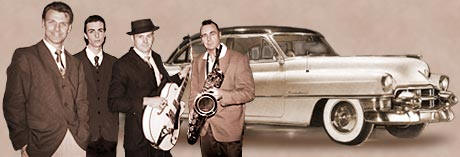
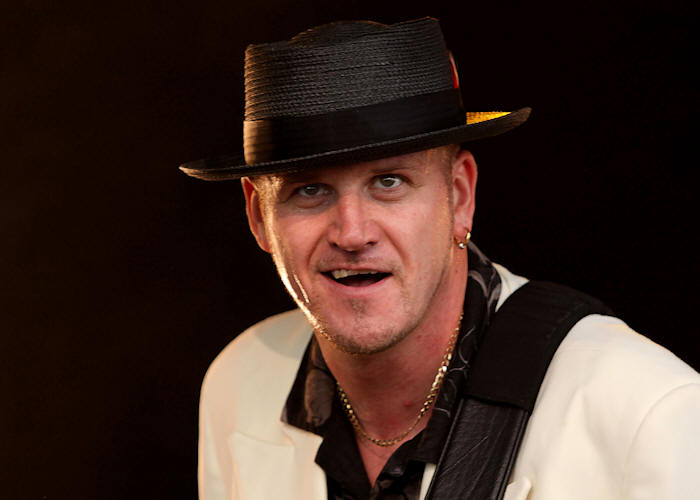
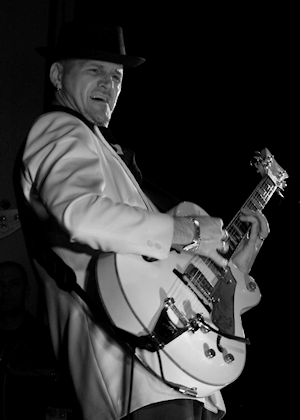 Alan: That's covered the next few questions!.
So what does Rock 'n' Roll and Rhythm & Blues mean to you?
Alan: That's covered the next few questions!.
So what does Rock 'n' Roll and Rhythm & Blues mean to you? 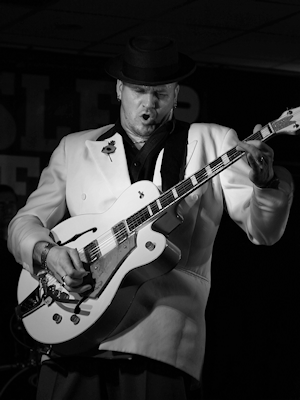 Alan: Any thoughts of going to the States?
Alan: Any thoughts of going to the States? 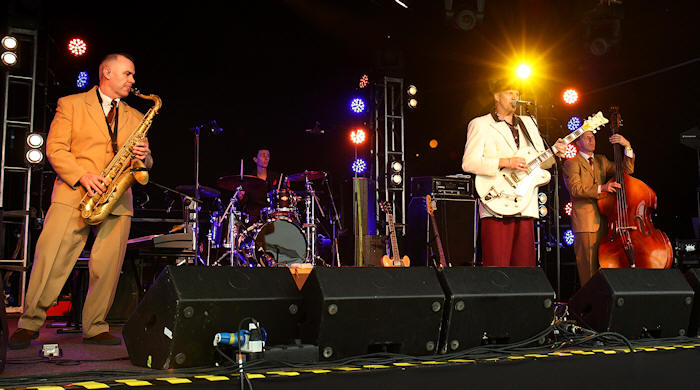
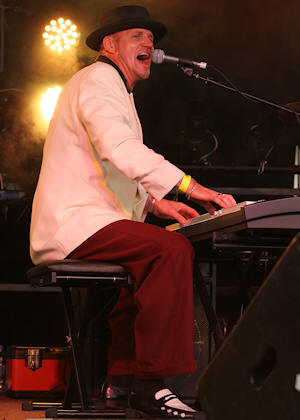 Alan: Tell me about the making of your latest
'Have Love, Will Travel' album; how did you select the songs,
where was it recorded?
Alan: Tell me about the making of your latest
'Have Love, Will Travel' album; how did you select the songs,
where was it recorded? 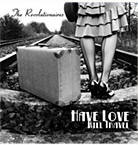 Ed: That's kind of my job as MD of the band,
I normally do the research and look at the songs to see if we can do a
good version of it. Sometimes the originals are such classics, rather
than do it exactly like the original, we put our own stamp on it and
change it round and see what we can do with it. There's a mixture of
boogie-woogie, and little bit of jazzy blues, like Louis Jordan, who is
a big influence as well. We do Richard Berry's 'Have Love Will
Travel', the title track of the CD, although our version is more
like The Sonics, so there's a kinda 60s garage trashy sound on it as
well for one or two songs. Again my brother Rich plays bass guitar and
double bass, so again for some variation he changes between the two
because it can give you two totally different sounds. We are very proud
of the CD. It was great that I was able to bring in a horn section; it's
given is a really full sound and hopefully it would be nice to gig that
kind of eight piece band at some point.
Ed: That's kind of my job as MD of the band,
I normally do the research and look at the songs to see if we can do a
good version of it. Sometimes the originals are such classics, rather
than do it exactly like the original, we put our own stamp on it and
change it round and see what we can do with it. There's a mixture of
boogie-woogie, and little bit of jazzy blues, like Louis Jordan, who is
a big influence as well. We do Richard Berry's 'Have Love Will
Travel', the title track of the CD, although our version is more
like The Sonics, so there's a kinda 60s garage trashy sound on it as
well for one or two songs. Again my brother Rich plays bass guitar and
double bass, so again for some variation he changes between the two
because it can give you two totally different sounds. We are very proud
of the CD. It was great that I was able to bring in a horn section; it's
given is a really full sound and hopefully it would be nice to gig that
kind of eight piece band at some point. 